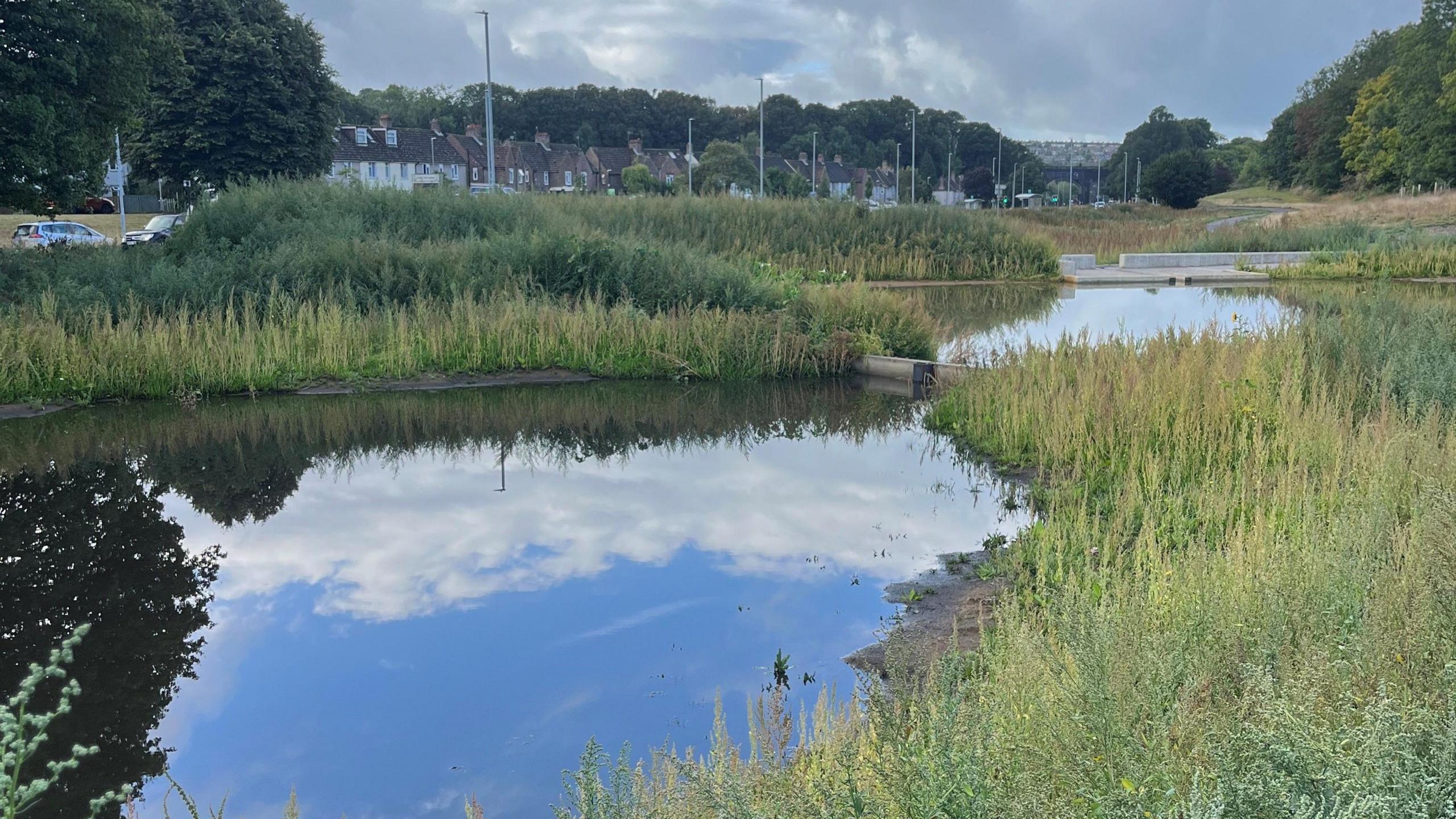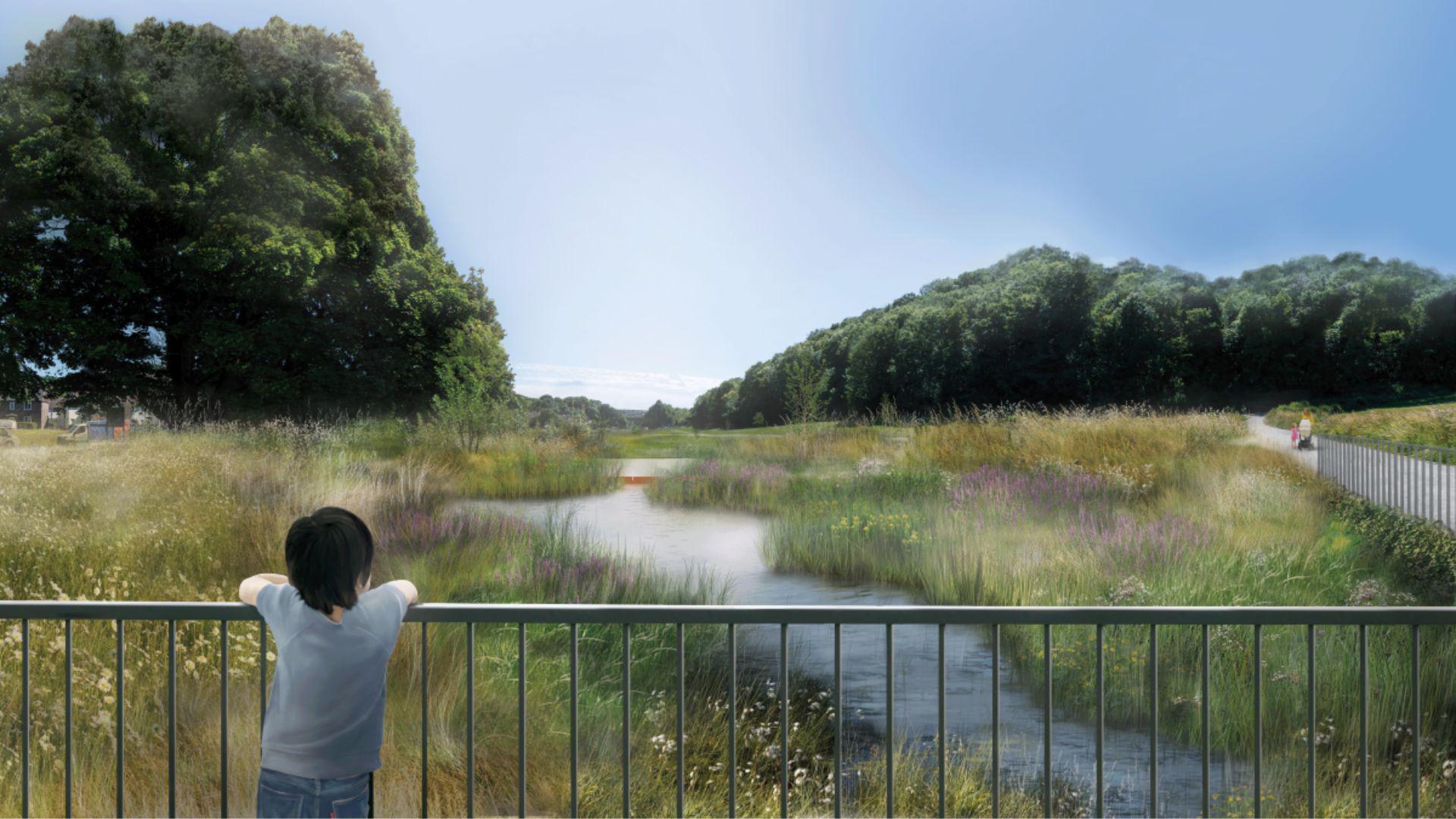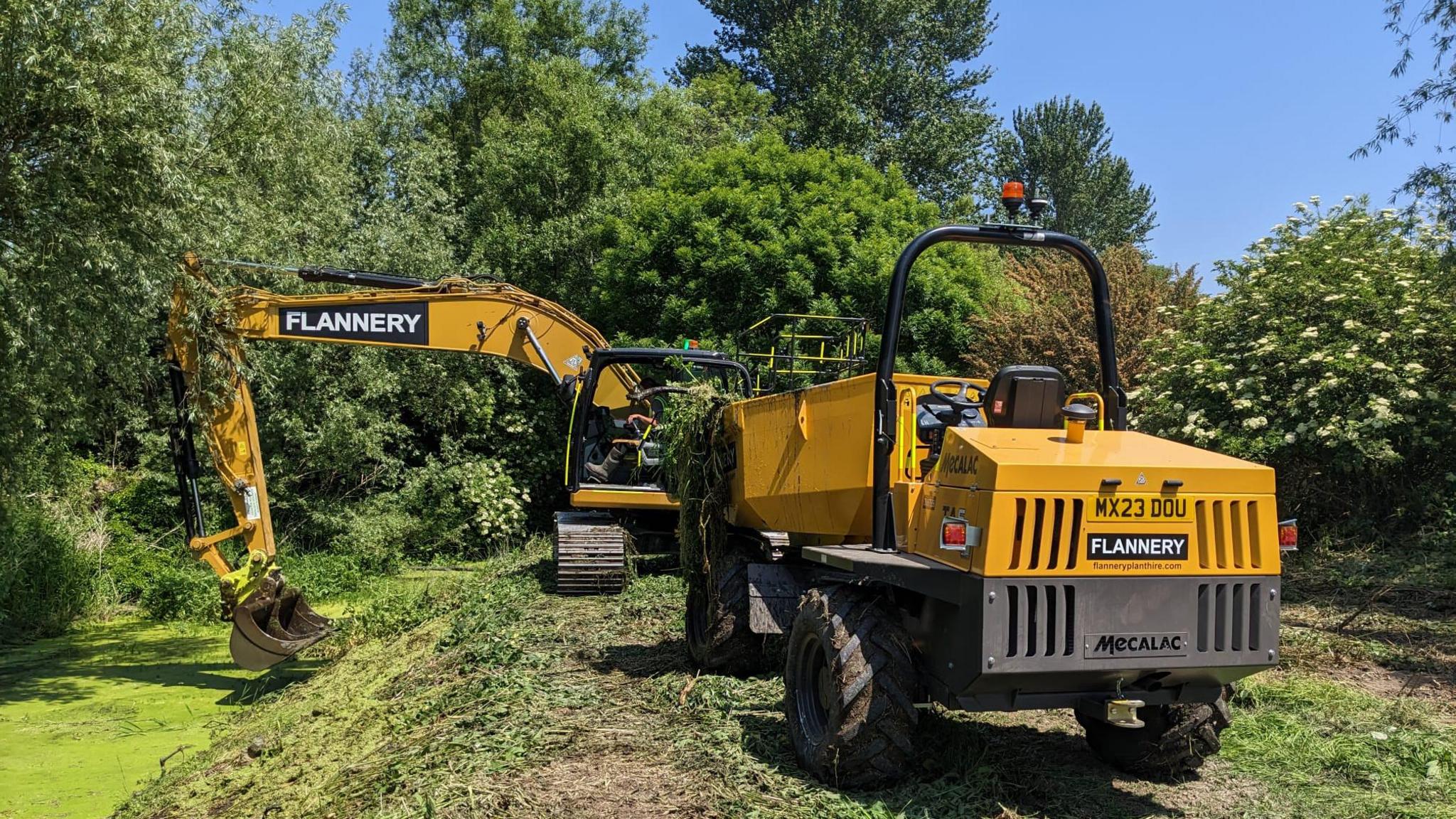Project to protect drinking water from pollution

The Wild Park rainscape has been six years in the planning
- Published
A new project aims to protect the vast majority of a city's drinking water from toxic road pollution.
Every time it rains, millions of litres of water wash off roads, carrying a dangerous mix of oil, tyre particles, heavy metals, and microplastics, according to the University of Brighton.
The Wild Park rainscape, built beside the A27 on the edge of Brighton, aims to capture and filter polluted runoff before it reaches the chalk aquifer, a body of permeable rock which can contain or transmit groundwater.
This stormwater runoff is a "largely unseen but significant pollutant, affecting rivers, wetlands, and groundwater," university researchers said.
Over 90% of the city's drinking water comes from the underground aquifer, researchers say.
Prof Martin Smith, from the university's school of applied sciences, said: "When polluted water from our roads seeps into the aquifer, it's not just a scientific problem – it's our drinking water, our children's health, and our local environment at stake.
"Projects like the Wild Park rainscape make sure the water we rely on every day is safe."
The project, which had been planned for six years, involved planting reed beds and wetland plants, trees, and a wildflower meadow to collect rainwater and filter out pollutants, according to Brighton & Hove City Council (BHCC).
Before construction began, the university team monitored runoff from the A27 and found water in the area contained higher levels of contaminants than recommended.
Lead, a remnant from older fuels, chromium from road markings, and polyaromatic hydrocarbons from tyres and asphalt were all present.

The project aims to capture and filter polluted runoff before it reaches the chalk aquifer
Laboratory tests showed that much of this contamination could be captured before it reached the soil.
Water from the road travels along a 1.2-mile (1.9km) route, passing through multiple filtration stages before it reaches the ground.
The university team will continue long-term monitoring in the coming years to measure the rainscape's impact on water quality, pollutant removal, and biodiversity.
Trevor Muten, cabinet member for transport and city infrastructure at BHCC, said: "The rainscape is a ground-breaking project in more ways than one, harnessing the power of nature to filter out pollution and protect the underground chalk aquifer which supplies much of our drinking water.
"It is helping to prevent flooding and provides a stunning new landscape for people and wildlife in Wild Park."
Follow BBC Sussex on Facebook, external, on X, external, and on Instagram, external. Send your story ideas to southeasttoday@bbc.co.uk , external or WhatsApp us on 08081 002250.
Related topics
- Published27 June 2024

- Published9 June 2023
